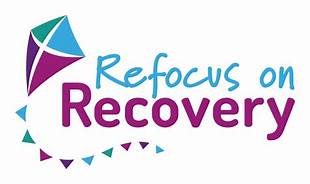
Bipolar disorder diagnosis
So, you have been diagnosed with Bipolar Disorder! And now you are wondering what’s next.
As with any diagnosis of illness whether it’s a physical or mental illness, you would be stunned, scared or possibly in denial. The first thing you should do is take time to digest the information you got from your doctor. Take time let it sink in, go home, and think about it. You do not need to rush into doing anything, when absorbing this diagnosis you must remember a diagnosis of bipolar disorder is not the end of the world there are many success stories of patients who sort help, treatment and medication, have recovered and so could you.
Learn about bipolar disorder and depression
It’s important that you learn about the bipolar disorder and depression as well. You know how you feel and you need to understand why you are feeling that way. The more you learn about bipolar disorder, the more you will understand and what this all means to you and your family.
Discuss treatment options
I highly recommend seeing a Psychiatrist for medication options and a clinical psychologist for psychotherapy. However, some psychiatrist do both medicine and psychotherapy the both are very important in the recovery process. Once you have had the chance to accept your diagnosis set up an appointment with your psychiatrist and clinical psychologist. Here you can discuss the best treatment options (medication, therapy) that works best for you. Medication is not a one size fit all, what may work for someone else may not work for you. Only a doctor should give advice concerning medication.

You may need to make lifestyle changes as well for further information on these changes you can consult with your doctor. Make sure to ask about any side effects that the medication has. There are many medications available so be sure to ask your doctor about the pros and cons of the different kinds of medication. When your doctor recommends specific kinds of medications, ask why.
Write down your questions
After you visit to your doctor, you will most likely think of questions you didn’t ask during your session. Use a small notebook include any questions you might need to ask your doctor, you can take this with you to every doctor’s appointment to be sure you’re getting your questions answered.
From now until the end of January I will be doing blogs on bipolar disorder. I have received many request for answers on this disorder. I think it would be beneficial for those with the disorder and for people who have loved ones with the disorder.
Any questions, queries and concerns regarding mental illness please feel free to leave a comment or you can drop me an email. mhcoachingonline@gmail.com




Hi Amy,
Love this post! Thank you for sharing it!
I find your blog very inspiring and I really wanted to share it with others so I’ve nominated you for the Liebster Award: https://over-coming-ocd.com/2020/01/19/liebster-award/
Keep up with the good work!
Blessings,
Mark
LikeLiked by 1 person
Hi, Mark,
I am glad that you found my post interesting and inspiring. It has always been my main focus with my blogs to inspire others and I’m happy to see its working. I appreciate you comment and feedback on my blog, you can go ahead and share it.
Thank you for nominating me for the Liebster Award it means a lot.
LikeLiked by 1 person
The quality of the information you provide is highly accurate and reliable. The biggest things that helped me recover were taking my medication and stopping drinking. I couldn’t do that until I had the medication. Recovery in bipolar is as much, if not more so, about dropping bad habits, which then leave the way clear for healthier ones. Keep up the great work.
LikeLiked by 1 person
Thank you so much for such kind words Mrs MacNonymous, I do my best 🙂 You made some important points here.
I agree with you completely bad habits are challenging for everyone. I believe when you overcome those obstacles the recovery process begins. Admitting there is a problem is also important. Recovery is not a marathon rather its a process that takes time and should not be rushed everyone is different. And yes, adherence to medication and treatment is key, also lifestyle changes like, getting the proper nutrition and staying away from refined carbohydrates or sugary foods.
Thank again for such a wonderful comment Mrs MacNonymous
Blessings to you!
LikeLike